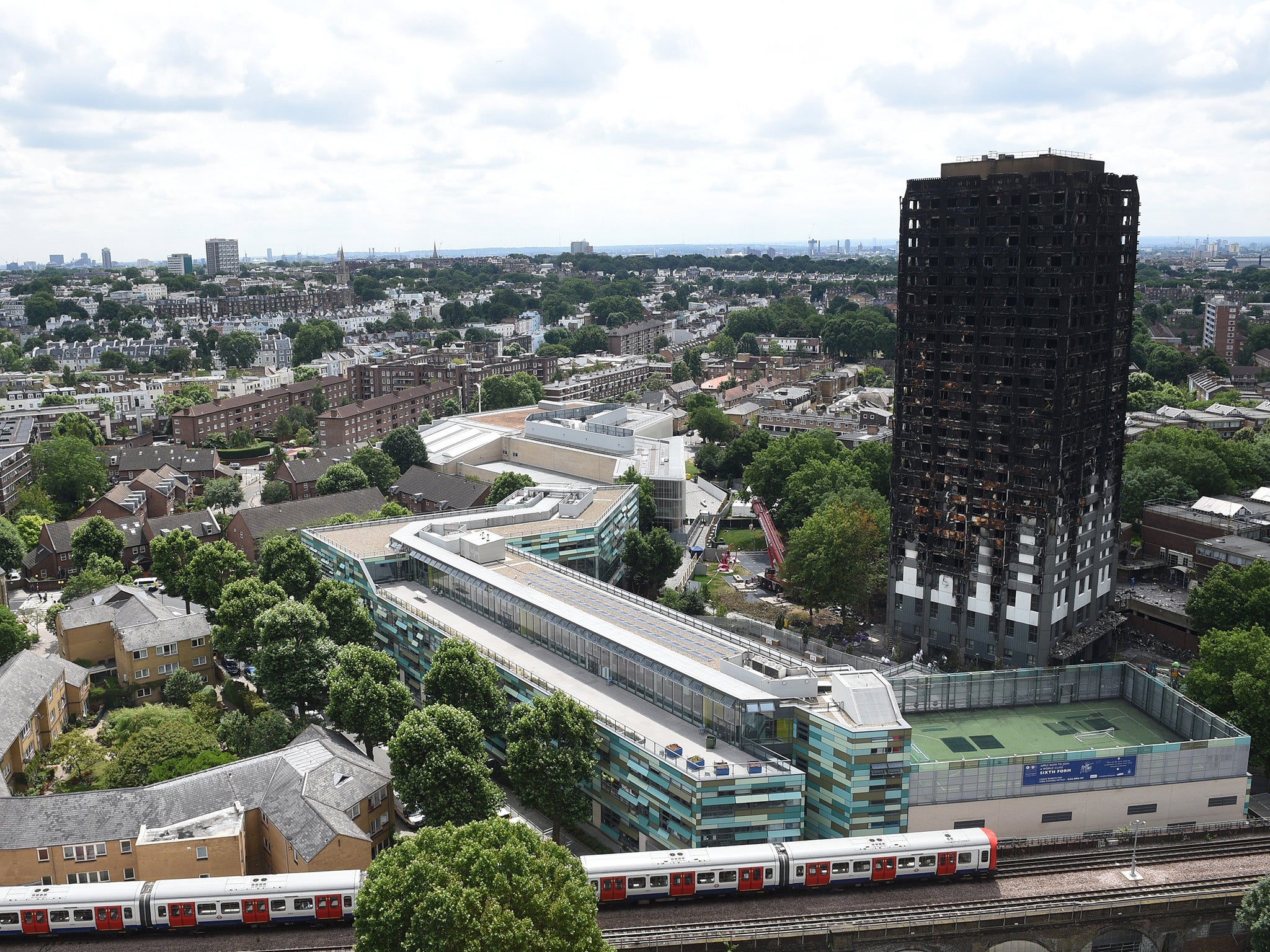Kensington and Chelsea real estate developers dodged commitment to build 706 social homes – which could have housed all the Grenfell survivors
Figures show that over last seven years, developers have been sidestepping local planning policy to avoid building hundreds of homes in the borough

Housing developers in Kensington and Chelsea have used a legal loophole to dodge their commitment to build more than 700 social homes in the borough – which would have been enough enough to house all the survivors of the Grenfell fire plus many more, it has emerged.
Just over three months after the Grenfell Tower tragedy, as around 200 households still wait to be resettled, figures show that developers have sidestepped local planning policy to avoid building 706 social homes in the borough over the last seven years.
The findings, obtained through a Freedom of Information request to the Royal Borough of Kensington and Chelsea (submitted by charity Shelter), have led to calls for the Government to ensure affordable housing commitments are not viewed as “optional extras”, allowing developers to “wriggle out” of the requirements.
Despite being required by local planning policy to build a certain number of social homes, analysis of the council data shows that these haven’t been built in large part due to a legal loophole called a “viability assessment”.
Developers first win planning permission by promising they will build the required number of affordable homes in the scheme, but they can then go back to the council and say they can’t build them because it would reduce their profit margin – using a viability assessment to support their argument, according to Shelter.
In Kensington and Chelsea, the loophole has been used by developers to reduce the amount of affordable housing from the council’s policy target of 50 per cent to just 15 per cent on those schemes over the past seven years.
This gap between the council’s target and what was eventually permitted is the equivalent to 831 affordable homes – of which 706 would have been social homes, which have not been built.
Of the 96 schemes granted planning permission that were analysed, 44 used a viability assessment. However, as these tended to be the larger schemes, they covered 68 per cent of the homes granted permission over the period (2,400).
Of the planning permissions where viability assessments were not used, the affordable housing achieved was 38 per cent – significantly closer to the council’s policy of 50 per cent. This suggests that the use of viability assessments has an impact the provision of affordable housing.
Opposition politicians have described the fact that real estate developers are able to use the loophole as “scandalous”, urging Government ministers to end the “clear abuse” of having “one rule for major corporate developers and another for the poor and vulnerable”.
Wera Hobhouse MP, Liberal Democrat housing spokesperson, told The Independent: “It is scandalous that developers are using this loophole to avoid their obligations, but even more scandalous that the Government is allowing them to do so.
“Social housing has never been more urgently needed, as the Grenfell disaster and its aftermath have highlighted. Ministers should come before the House and explain what they are going to do to end this clear abuse.
“Survivors of Grenfell will conclude that there is one rule for major corporate developers and another for the poor and vulnerable. That has to stop.”
Shelter chief executive, Polly Neate, meanwhile said the figures revealed how under current legislation, big developers were able to “backtrack” on pledges to build affordable homes.
“At a time when we desperately need more affordable homes, big developers are allowed to prioritise their profits by building luxury housing while backtracking on their promises to build a fair share of affordable homes,” she said.
“The Government must make sure we treat affordable housing commitments as cast iron pledges, rather than optional extras, and act now to close the loophole that allows developers to wriggle out of building the affordable homes this country urgently needs.”
It comes amid mounting anger over the lack of social housing for Grenfell Tower survivors, after it emerged that that the vast majority of families displaced by the tragedy have not yet been rehomed.
Council leader Elizabeth Campbell confirmed on Wednesday that 52 families had so far accepted permanent housing offers and 20 families were now in their new permanent homes, but around 200 households from the Tower and Walk still needed to be resettled.
A DCLG spokesperson said: “Affordable housing is a top priority for the Government. That’s why we are investing £7.1bn in our Affordable Homes Programme to boost development. Since 2010, we have delivered almost 333,000 affordable homes.
“Where a local authority recognises the need for affordable housing they should set policies for meeting this as part of their local plan.
“We are currently consulting on a proposed approach to viability assessments. Our measures would speed up decision making and increase transparency, so that local communities know what is expected from developers on new sites.”
Join our commenting forum
Join thought-provoking conversations, follow other Independent readers and see their replies
0Comments